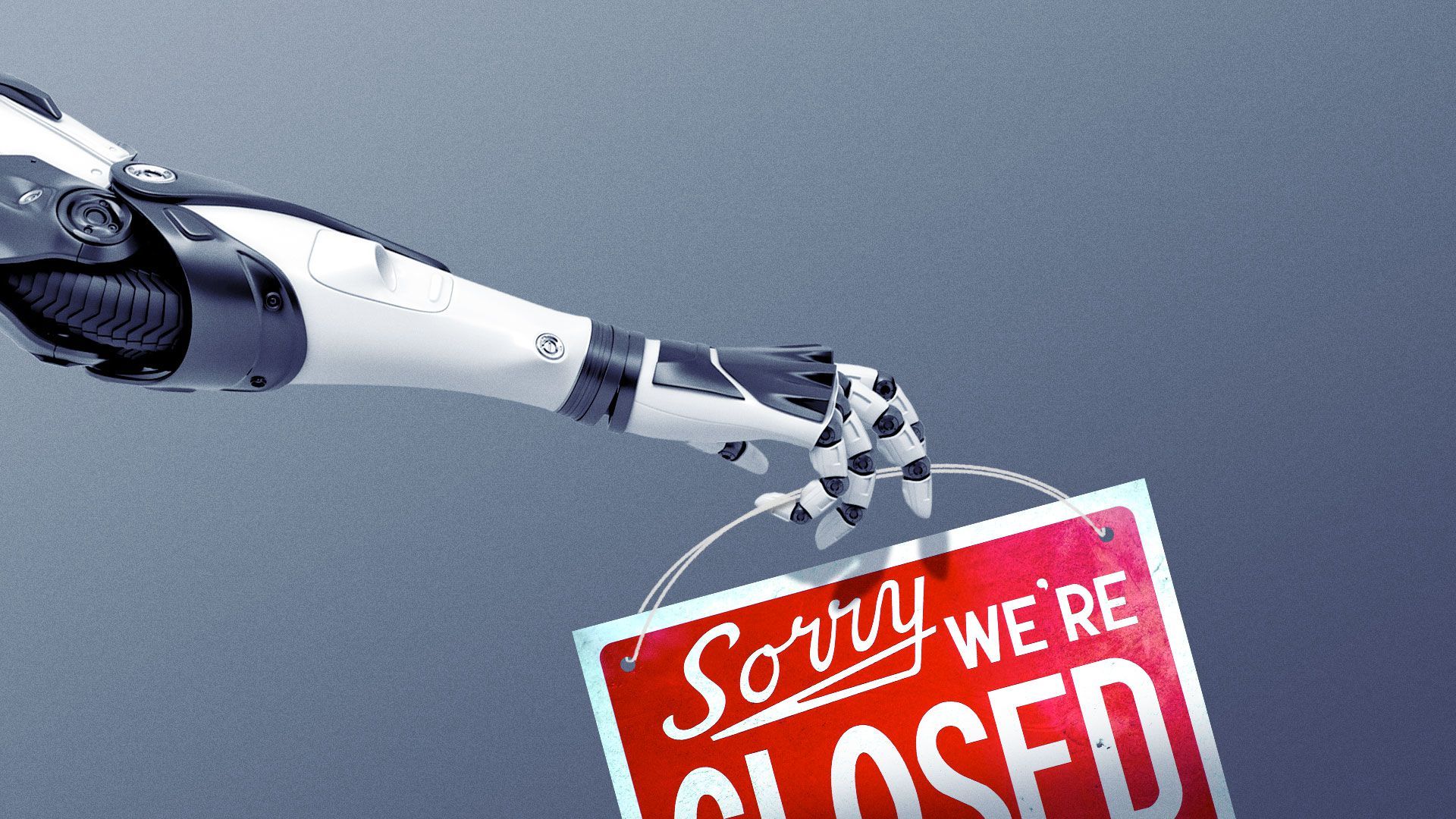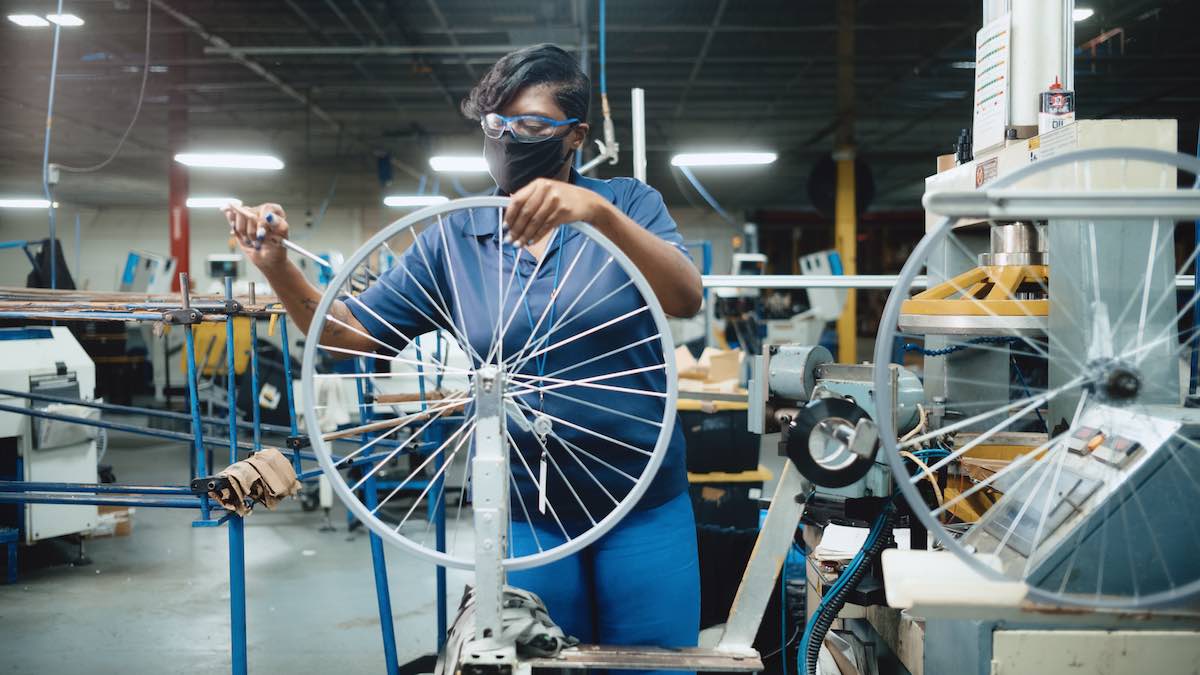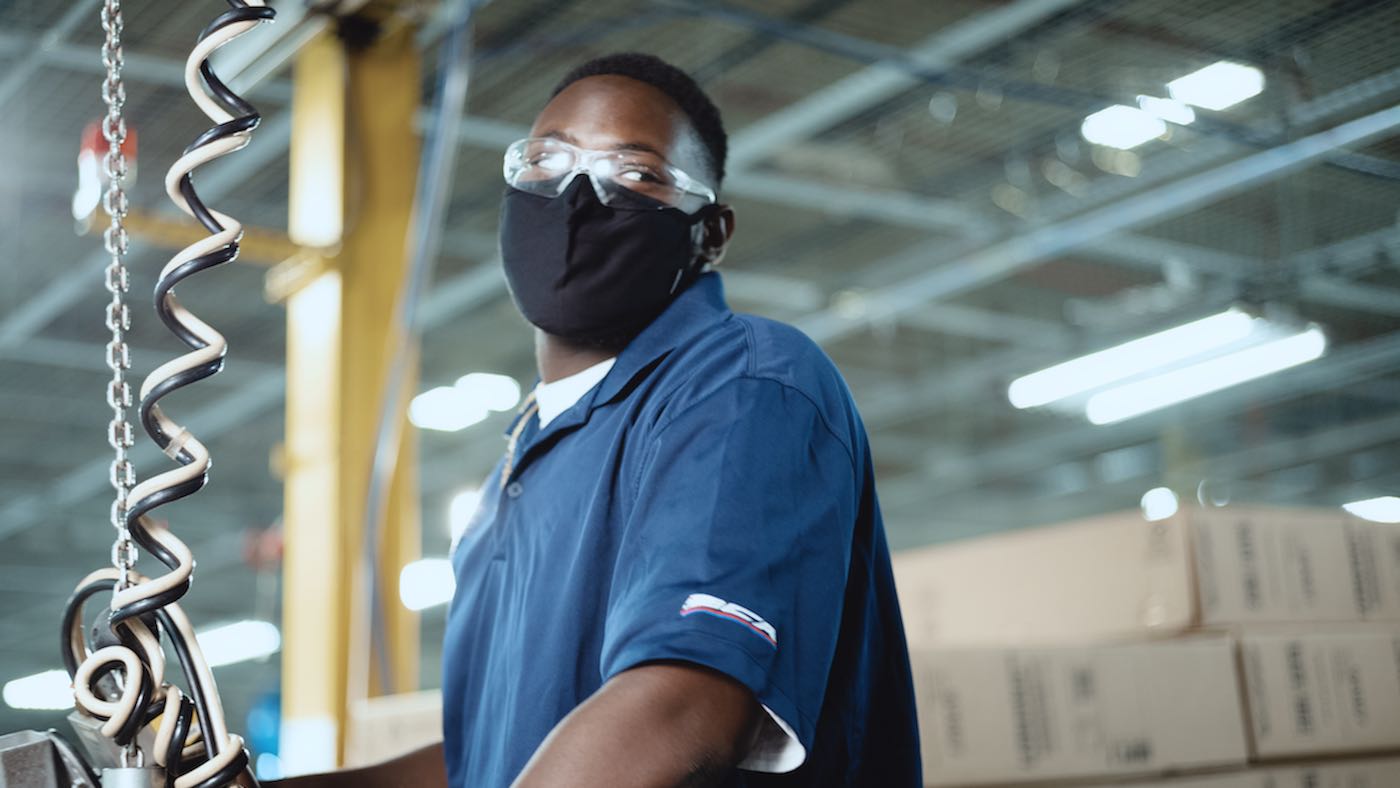| | | | | | | Presented By Walmart | | | | Axios @Work | | By Erica Pandey ·Nov 10, 2020 | | Welcome back to @Work. I'd love to hear your feedback on today's edition or your thoughts on what you'd like to read about next week. Reach me at erica@axios.com or on Twitter @erica_pandey. I've got 1,424 words for you, which should take about 5 minutes to get through. To start... | | | | | | 1 big thing: The business case for child care |  | | | Illustration: Eniola Odetunde/Axios | | | | The coronavirus pandemic has exposed the inextricable link between child care and the economy — and it's pushing businesses to confront the cost of working parents' unpaid side gig. The big picture: Child care is denting the workforce, preventing a huge swath of Americans from contributing to their firms and to the economy at large. To chip away at the problem, and protect their bottom lines, employers are bulking up child care benefits for workers. - "COVID has brutally revealed that child care is not just a family issue," says Alyssa Johnson, a VP at Care.com. "It's a business issue."
By the numbers: - Working parents — who make up about a third of the U.S. workforce — are losing an average of eight hours per week due to child care responsibilities during the pandemic, per Northeastern University research.
- Even before the pandemic, inadequate child care was costing working parents $37 billion a year in lost income and employers $13 billion a year in lost productivity, according to Care.com's data.
What's happening: Companies across states and industries are bolstering existing benefits and adding new, creative ones to help their employees with kids. - New services: Citigroup is offering discounted test prep and tutoring to employees with school-age kids, reports Fortune.
- Making connections: Home Depot and Dell have established support groups for working parents to swap tips or just vent.
- Good, old cash: Many working parents are saying the best benefit is simply money, which gives them the flexibility to seek out the specific type of child care that makes sense for them. Bank of America and Deloitte, among other firms, are offering up to $100 a day in child care reimbursements during the pandemic.
Worth noting: Before the pandemic, on-site child care was considered the gold standard benefit, Johnson says. - Patagonia, which has offered in-house day care since 1983, has long been held up as an example. The company says employees who use its child care program have turnover rates that are 25% lower than other staff.
- The pandemic has closed offices and, by extension, companies' on-site care centers, but, when things go back to normal, look for more companies to add this option as a perk to recruit and retain workers.
What to watch: "Employers benefit from a strong child care system," says Karen Schulman, director of state child care policy at the National Women's Law Center. "That being said, it's not necessarily the best solution to tie it all to the employer. We see this as needing large federal investment." - "But Congress has really left the child care industry to fend for itself," says Alicia Modestino, an economist at Northeastern. Day care centers got just $3.5 billion in aid under the CARES Act in March. Economists say they need at least $50 billion to stay afloat.
- And parents need another round of stimulus checks for money to spend on child care, she says.
|     | | | | | | 2. Robots vs. retail workers |  | | | Illustration: Eniola Odetunde/Axios | | | | For years, retail has been lurching toward automation. Last week, Walmart took a significant step back. Why it matters: In a rare win for retail workers, Walmart decided to take shelf-scanning robots out of its stores in favor of humans. But automation is still coming faster for retail jobs than for most other occupations, experts say. Driving the news: Walmart had deployed 6-foot-tall shelf-scanning bots from Bossa Nova Robotics in 500 of its 4,700 U.S. stores before the retail titan decided to end the contract. The bots' job was to take stock of inventory. - Walmart ended its partnership with Bossa Nova because it found that humans could do that job just as well, the Wall Street Journal's Sarah Nassauer reports.
- Bossa Nova laid off around 50% of its workforce after losing the contract, per Nassauer.
But, but, but: When it comes to retail jobs, "in the longer term and at scale, the economics favor automation," J.P. Gownder, an expert on automation at Forrester, told me a year ago. And he stands by that projection. - "There are always bumps along the way in the launch of new technology categories," he says. "There will be vendors who lose big contracts along the way."
- But Walmart is still rapidly automating other types of jobs at its stores and warehouses. And there are other retail chains, like Schnucks and Giant, that continue to use shelf-scanning bots, Gownder notes.
- On top of that, social distancing guidelines might make some retailers even more eager to replace human in-store workers with robots, he says.
|     | | | | | | 3. Charted: The crisis for education workers |  Data: Pew Charitable Trusts; Map: Danielle Alberti/Axios State and local education employment is down 8.8% in October compared with 2019. That's education's lowest national jobs total in 20 years, according to an analysis out Tuesday from Pew Charitable Trusts. Why it matters: With school closures, temporary layoffs and positions left unfilled in the new school year, the education workforce has been one of the hardest hit amid the pandemic, Axios' Marisa Fernandez writes. The big picture: In addition to teachers, non-instructional positions like bus drivers, food service personnel and other support staff bore the brunt of the losses as schools shifted to distance learning. By the numbers: Nevada (-19%), West Virginia (-14%) and Florida (-13%) recorded the largest education job declines from a year ago. - North Dakota and Utah were the only states reporting gains in local education jobs.
- Private sector jobs dropped 6.2% year over year.
- Public colleges and universities experienced a sharper drop in employment of 13.7%. Still, this loss represents only about half of what K-12 experienced.
What to watch: A significant portion of job losses may bounce back when students physically return to classrooms, or if Congress decides to approve additional funding for education, per Pew's report. Go deeper: America's education workforce needs students at school |     | | | | | | A message from Walmart | | Walmart's $250 billion commitment to grow American jobs | | |  | | | | In 2013, Walmart made a $250 billion commitment to products made, grown or assembled in America to stimulate U.S. manufacturing jobs in communities across the country. Why it's important: The Boston Consulting group estimates the investment will help create 1 million new jobs. | | | | | | 4. Confronting corporate burnout | | Burnout at work is intensifying as the pandemic drags on, and companies are figuring out how to keep employees engaged and happy (or as happy as they can be during a global health crisis). What's happening: Some companies are mandating paid time off and forcing workers to take a certain number of days off per quarter, writes CNN"s Kathryn Vasel. - Airline marketing strategy firm SimpliFlying takes that mandate so seriously that if employees are caught working during a week off, they won't be paid for that week, she writes.
And even if there's little we can do about pandemic-induced burnout, talking about it helps, some companies are discovering. - Eventbrite employees are getting together for virtual sessions to discuss these strains on their mental health, per the Wall Street Journal. Accenture is training managers on how to support workers who are struggling.
- Fidelity Investments has a pilot program that lets employees cut their hours to 30 per week, with a small pay cut, and keep all their benefits. The company is hiring more people to allow that program to run without putting extra work on those who don't cut their hours, according to the Journal.
Go deeper: United States of burnout |     | | | | | | 5. Worthy of your time |  | | | Illustration: Aïda Amer/Axios | | | | How the pandemic fueled 2020's golf boom (Axios) - Golf was a physical and mental safe haven for millions of Americans with cabin fever this year, and even moderate retention of the sport's newcomers could help buoy an entire industry for years to come.
The tough back-to-the-office call (New York Times) - The Times' Nelson Schwartz dives into the hard decisions and conversations between bosses, employees and families after a toy company in Florida decided it was time to (safely) summon workers back to the office.
The silver lining in the wave of store closings (Fast Company) - The U.S. has too much retail space — 23 square feet per person, compared with 5 in the U.K. The pandemic-fueled store shutterings mean all of that real estate could be transformed into new spaces like medical facilities, yoga studios, community colleges or e-commerce warehouses.
What it's like to hunt for jobs in a pandemic (Vice) - Vice's Reina Sultan tells the story of seven young people across the country who have been trying to find new jobs amid lockdowns. For context, the latest jobs report showed that unemployed people outnumber available jobs by a ratio of nearly 2 to 1.
|     | | | | | | 6. 1 fun thing: Working from a Ferris wheel |  | | | Photo: Philip Fong/AFP via Getty Images | | | | I've been compiling some of the most creative interpretations of work-from-anywhere I've seen during the pandemic: they include mountain tops, dive bars and Bermuda. - This week I stumbled upon my favorite one yet: In Japan, workers are sending emails and taking calls from Ferris wheels.
What's happening: Yomiuriland, a Tokyo amusement park, is letting office workers rent a spot on its Ferris wheel — which offers a view of the skyline and Mount Fuji — for up to an hour a day, reports the Wall Street Journal. - The park will even throw in a WiFi device and a battery, and if you want to stick around after your hour in the sky, you can continue renting space poolside at the theme park.
- It's a smart way for Yomiuriland, which has seen business plummet since the onset of the pandemic, to make some money.
One hiccup: "I got motion sickness because I went there on an empty stomach," Kazuaki Kashiwada, a 60-year-old engineer at a Japanese tech company, told the Journal. |     | | | | | | A message from Walmart | | 175+ small businesses find new opportunities at Walmart | | |  | | | | Walmart is advancing more than 175 small businesses forward in the process to land their products on store and club shelves. The takeaway: In a year of economic uncertainty, Walmart's $250 billion investment in U.S. manufacturing continues to help grow jobs and support communities. | | | | Thanks for reading! | | | | Axios thanks our partners for supporting our newsletters.
Sponsorship has no influence on editorial content. Axios, 3100 Clarendon Blvd, Suite 1300, Arlington VA 22201 | | | You received this email because you signed up for newsletters from Axios.
Change your preferences or unsubscribe here. | | | Was this email forwarded to you?
Sign up now to get Axios in your inbox. | | | | Follow Axios on social media:    | | | | | |
No comments:
Post a Comment